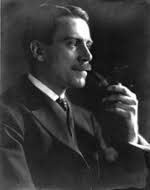The Substitute Millionaire
Jack Norman had no idea he was Silas Gyde's sole heir—until the multimillionaire was killed by an anarchist's bomb and Jack found himself the richest man in New York. The inheritance included a warning from his benefactor about an elaborate protection scheme promising to protect the wealthy from anarchists, in which Gyde had declined to enroll. Recognizing his own danger, Jack enlists a out-of-work actor to take on his own identity, while he, in the guise of Jack Norman's secretary, works furiously behind the scenes to break up the gang and unmask their leader, the mysterious Mr. B.
1 On a certain morning, just as on six mornings in the week (barring holidays) and fifty weeks in the year, Jack Norman wormed his way into a crowded subway local at Fiftieth street, and, propping himself against the end of a cross seat, opened his paper. But this morning, like everybody else in the train, he approached the headlines with an unusual thrill of interest, for an immense sensation was in process of being unrolled in the press. Two days before, Silas Gyde, the millionaire miser and usurer, had been blown to pieces in the street by a bomb. The assassin, arrested, proved to be not one of those who had a grievance against the old money lender (there were supposed to be many such) but a maniac of anarchistic proclivities. His name was Emil Jansen. He was already on the way to an asylum for the criminal insane. The main facts of the case having been given in previous issues, space in the paper to-day was largely devoted to anecdotes illustrating the extraordinary eccentricities of the dead man. It was said that with an income of perhaps six millions a year, he spent no more than six hundred. He bought his clothes at an immigrant outfitters' on Washington street, and even so had not had a new suit in two years. To keep himself from spending money it was his habit to go about with empty pockets, and borrow what few cents he needed from bootblacks, newsboys and applewomen to whom he was well known. But he was scrupulous in repaying these debts. Every day, even when he had become old and feeble, he turned up at the office of a certain corporation for the sake of a free lunch provided to the directors, though he had to walk a mile from the Wall street district where all his business was transacted. It was at the door of this office that he had met his end. And so on. And so on. Silas Gyde died a bachelor, and had left no kin so far as was known. His wealth was said to be well in excess of a hundred million dollars. The paper gave a tempting list of the gilt-edge securities he was supposed to own; but nothing was known for sure, for though continually engaged in litigation, he had left no personal attorney; he had not sufficiently trusted any man. No one could say, now, where he had kept his wealth or how he had intended to dispose of it. Young Jack Norman read of the millions with the kind of aching gusto that a hungry man pictures a good dinner. Jack's earnings were twelve dollars a week. He knew little about sociology or economics, but he could not but feel a dim dissatisfaction with the scheme of things that restricted him, with all a youth's capacity for living largely, to twelve dollars weekly, while it provided the old man with the tastes of a hermit crab, with a hundred thousand. Twelve dollars a week meant that Jack's still boyish appetite daily had to be less than satisfied by the fare of a second rate boarding house; it meant that he had to wear cheap clothes when the instinct of his years was to array himself like Solomon; it meant that his lip must curl with envy as the pleasures of the town passed him by; hardest of all to bear, it meant that the joys of honorable courtship were denied him. A fellow must have money to take a girl out in town. Jack's case was not peculiar. The same expression of sullen wistfulness might have been read in many a young face on the same train. What distinguished this face from the others was a latent fire in the eyes which suggested that, given the opportunity, the possessor had the capacity to play a larger part in life than twelve dollars a week permitted. He got off at Worth street and made his way East to Centre where he worked as book-keeper in Fisher's sash and blind factory. Walking the street, like many another young head that morning, his was light with dreams. "If I had Silas Gyde's money I wouldn't be pounding the concrete like this. I'd be fluffing down to Wall street in my Rolls-Royce. Or my yacht would be putting me ashore at the Battery. Or a special train up from Lakewood. First thing I'd do would be to tell Fisher to go to Hell. Oh, that would be worth a million! "I'd say to Fisher: 'Who do you think you are, you little two-spot bankrupt carpenter with your business in your wife's name! One would think you were William K. Astorbilt, the airs you give yourself. Why I could buy you out for the price of what I spend for a meal!'" As he turned in at the door of Fisher's place Jack's eyes involuntarily sought a window in the establishment of the hardware jobber opposite. As present the window was tenantless; later it would be sanctified by a chestnut head bending over a typewriter. Jack's dreams were diverted into another channel. "If I had Silas Gyde's money she wouldn't have to pay for her own lunch when she eats with me. And I could take her out nights. Oh! Automobile, dress-suit, box seats at the Opera, supper at the Bienvenu and a dance! Lord! And they say old Gyde lived on my salary!" The offices of the Fisher factory were on the second floor. As Jack turned in from the hall, Fisher himself was standing at the door of his private office; hands in pockets, cigar rolling between thick lips, hat on the back of his head, on his face the customary brutal sneer. "You're late!" he rasped. "Can't you get out of bed in the mornings?" This was a regular performance at Fisher's. The boss took his pleasure that way, and the office employees were hardened to it. But at the moment Jack was exalted. In his imagination he was still the master of millions. "The clock's fast," he said curtly, meeting Fisher square in the eye. "You lie!" said that gentleman. By way of answer Jack pulled out his watch and compared it with the wall clock. The glance was not complimentary to Fisher's battered time-piece. Fisher purpled with rage. "You ---- ----! Don't give me any of your lip!" "Who do you think you are?" said Jack coolly. The words were fatally ready to his tongue. "You little two-by-four sash and blind maker with your business in your wife's name! Better pay your bills before you talk that way to honest men!" Behind the fright in the eyes of the thin office-boy and the pale typist, gleamed a wondering delight. Never had such words been heard in that place! "Get out of here! Get out of here!" roared Fisher on the verge of apoplexy. "Get out before I throw you out!" "As to that," said Jack, "you're not man enough," and he took a step nearer the boss. Fisher precipitately retired into his private office, slamming the door behind him. The office boy tittered, and clapped a scared hand over his mouth. Jack turned on his heel, and coolly lit a cigarette--lit it and blew a whole cloud of smoke, there in those sacred precincts! The eyes of the other two regarded him with a kind of adoration. From behind the partition Fisher was still shouting: "Get out! You're fired!" "Much obliged," said Jack. "It was worth it." But even while he spake the brave words his heart was sinking like a stone in deep water. It was Wednesday, and his salary was always spent in advance of course. All he possessed in the world was a dollar twenty and his watch--fortunately out of hock for the time being. By this time, he thought Fisher was probably sorry too, and would take him back at a word of contrition--but with those admiring eyes on him, he could not speak it.
Translation
Translate and read this book in other languages:
Select another language:
- - Select -
- 简体中文 (Chinese - Simplified)
- 繁體中文 (Chinese - Traditional)
- Español (Spanish)
- Esperanto (Esperanto)
- 日本語 (Japanese)
- Português (Portuguese)
- Deutsch (German)
- العربية (Arabic)
- Français (French)
- Русский (Russian)
- ಕನ್ನಡ (Kannada)
- 한국어 (Korean)
- עברית (Hebrew)
- Gaeilge (Irish)
- Українська (Ukrainian)
- اردو (Urdu)
- Magyar (Hungarian)
- मानक हिन्दी (Hindi)
- Indonesia (Indonesian)
- Italiano (Italian)
- தமிழ் (Tamil)
- Türkçe (Turkish)
- తెలుగు (Telugu)
- ภาษาไทย (Thai)
- Tiếng Việt (Vietnamese)
- Čeština (Czech)
- Polski (Polish)
- Bahasa Indonesia (Indonesian)
- Românește (Romanian)
- Nederlands (Dutch)
- Ελληνικά (Greek)
- Latinum (Latin)
- Svenska (Swedish)
- Dansk (Danish)
- Suomi (Finnish)
- فارسی (Persian)
- ייִדיש (Yiddish)
- հայերեն (Armenian)
- Norsk (Norwegian)
- English (English)
Citation
Use the citation below to add this book to your bibliography:
Style:MLAChicagoAPA
"The Substitute Millionaire Books." Literature.com. STANDS4 LLC, 2025. Web. 20 Jan. 2025. <https://www.literature.com/book/the_substitute_millionaire_40>.




Discuss this The Substitute Millionaire book with the community:
Report Comment
We're doing our best to make sure our content is useful, accurate and safe.
If by any chance you spot an inappropriate comment while navigating through our website please use this form to let us know, and we'll take care of it shortly.
Attachment
You need to be logged in to favorite.
Log In